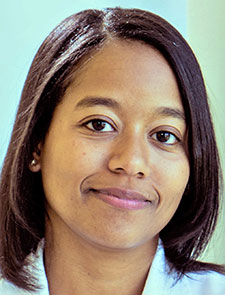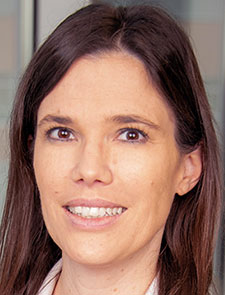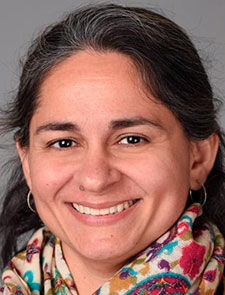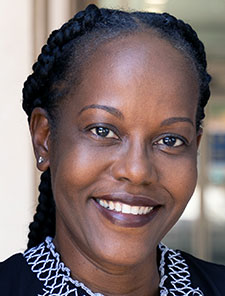“First, do no harm.” This is the oath we take as health care providers when we enter the medical profession. And, while previously thought of as an “add-on” to research, medical education, and clinical care, it’s clear that diversity, equity, and inclusion (DEI) must be integrated into all aspects of the work we do, not only to prevent harm, but to improve ourselves, uphold our patients’ trust, and make our communities healthier.
In 2018, SHM began the process of creating an infrastructure for DEI to help inform our work as hospitalists and as an organization. In a new series in The Hospitalist, we as members of the DEI committee will describe our journey, lessons learned along the way, and experiences in the field, with the goal of informing those who are leading organizational change in DEI and all those who can advocate for it in their institutions.
Creating safe spaces
At each annual conference, SHM hosts Special Interest Forums (SIFs). SIFs give members a chance to connect with individuals with similar interests and they provide safe spaces for members to share their experiences and have meaningful discussions about issues that directly impact our practices.
In 2018, individuals from institutions across the country gathered for the first Diversity and Inclusion SIF. The session began with a simple question, “Why are you here?” The answers ranged from wanting to improve structural diversity within hospital medicine groups, divisions, and residency programs (i.e., enhance diversity recruitment), to wanting to learn more about allyship, and leading change at home institutions (i.e., improving the culture and climate in respect to DEI).
After defining what DEI means to each of us, the group brainstormed ways organizations such as SHM can promote DEI. This included prioritizing speaker diversity and gender equity at meetings and conferences, increasing educational offerings related to DEI (sessions on unconscious bias, best practices in diversity recruitment, etc.), recognizing colleagues who show leadership in promoting DEI, and lastly, forming a committee to oversee these efforts.
Our mission
The discussions that took place during that first SIF served as the framework for building a formal DEI group within SHM. The DEI Special Interest Group (SIG) laid the foundation for much of the work that has since been implemented in the DEI space. The group began by defining its mission and constructing what would become SHM’s Diversity and Inclusion Statement: “Hospitalists are charged with treating individuals at their most vulnerable moments when being respected as a whole person is crucial to advance patients’ healing and wellness. Within our workforce, diversity is a strength in all its forms, which helps us learn about the human experience, grow as leaders, and ultimately create a respectful environment for all regardless of age, race, religion, national origin, gender identity, sexual orientation, socioeconomic status, appearance, or ability. To this end, the Society of Hospital Medicine will work to eliminate health disparities for our patients and foster inclusive and equitable cultures across our care teams and institutions with the goal of moving medicine and humanity forward.”
The SIG helped spearhead the creation of the Leadership in DEI award which recognizes individuals in hospital medicine who’ve developed innovative programs to improve the care of marginalized communities and promoted best practices in DEI.
It also considered SHM Converge and supported the implementation of a DEI-specific track, aimed to create an inclusive environment (ensuring lactation rooms and offering conference ribbons for preferred pronouns), and evaluated the impact of SHM’s open-call process on gender representation among Converge speakers.
Broadening our impact
Following the death of George Floyd in 2020, there was a national refocus on DEI and justice. As the twin pandemics of COVID-19 and racism collided, SHM responded with the commission of a time-limited task force to look critically at SHM’s work in promoting DEI and justice. This task force was charged with formally defining a DEI agenda for SHM and was asked to make specific recommendations to the SHM Board of Directors. The work of the task force was anchored by the principles of transparency, advocacy, innovation, and collaboration.
The task force recommended several short- and long-term strategies to improve DEI in hospital medicine. Importantly, it was recognized that to continue this work in a committed, consistent, and enduring way, a committee would be necessary. The task force formally asked the Board to approve a committee to support accountability for the reliable integration of DEI into all aspects of SHM’s work and the Board approved.
DEI committee
The first SHM DEI committee convened in 2020 and it has defined several enduring goals to support the integration of DEI practices and thereby support the organization’s membership and governance. The committee aspires to:
- Engage underrepresented minorities in medicine and enhance the pathway for future hospitalists
- More broadly disseminate DEI practices for translation into practice
- Define a framework to facilitate baseline diversity data collection
To describe the diversity of our organization, to understand where we are and want to go, and to deploy data-driven interventions, the committee prioritized enhanced collection of diversity data for members. The committee researched best practices for collecting diversity data and reviewed validated surveys to determine the categories that would be most helpful, and inclusive when collecting information on demographics such as race, ethnicity, gender(s), and sexual orientation. In collaboration with the membership team, the committee was able to add these categories to the data collection tool to better inform SHM’s membership profiles. Thank you to those who’ve updated their profiles! If you haven’t yet, we encourage you to do so by logging into your account at hospitalmedicine.org.
Creating pathways into medicine for underrepresented students is another committee priority. Our medical-student mentorship program began during SHM Converge 2022 in Nashville, Tenn. when we invited students from the Student National Medical Association at Meharry College to the conference. The students attended part of the conference free of charge and networked with other hospitalists and leadership. The highlight for the students, as well as committee members and SHM leadership, was a round-table discussion with several committee members and SHM’s CEO, Eric E. Howell, MD, MHM, in which we learned more about our students’ paths to medicine and career aspirations. As a group, we were able to discuss barriers and facilitators we had faced in our careers and brainstorm ways to mitigate those barriers and leverage resources. We continue to provide mentorship for the students via regular check-ins and interview-prep sessions to support sustained relationships throughout their careers.
SHM is in the second year of its Hospital Medicine Diversity, Equity, and Inclusion Scholarship, which is made possible by our generous Keystone Sponsor, Vituity. Through this fund, SHM provides $25,000 scholarships to third-year medical students underrepresented in medicine who have an interest in pursuing a career in hospital medicine and practicing in an underserved community. The goal of the scholarship aligns with one of the DEI committee’s missions—to support the growth of a diverse health care workforce.
Lessons learned
We learned several key lessons throughout the process of developing SHM’s DEI committee:
- Engage leadership and stakeholders early and often. This allows for buy-in and collaboration and is integral to building the trust needed to move efforts forward more efficiently and effectively and in fostering long-term engagement and sustainability.
- Have a clear mission. This is what will guide your strategic planning and serve as a reference when you feel you’re veering off track.
- Understand common barriers and facilitators to move this work forward. In our case, understanding the process for the formation of committees in our organization helped us better understand what was needed to advance to the next step and use available resources.
- It’s okay to start small. It’s okay to begin with a small group and then have an open call to engage all interested parties. You may be surprised by who comes to the table and the ideas they bring with them. With time, you can broaden your mission and scope, and continue to build initiatives.
- Celebrate wins! DEI work is rewarding and challenging. It’s important to pause and celebrate successes, even the small ones, and the overall progress that is made.
Hospitalists are the fastest-growing specialty in medicine. We care for patients when they’re at their most vulnerable. We are scholars, educators, quality-improvement experts, researchers, leaders, and advocates. In future articles in this DEI series, we look forward to sharing our progress with the hospital-medicine community and discussing important lessons in DEI to shape the future of our profession. In the next article, we’ll share plans to build our undergraduate mentorship program.
While we’re a long way from achieving diversity, equity, and inclusion in medicine, we are closer today than we were yesterday. With the committed force of hospitalists around the nation and a society that supports us, we’ll get closer every day.
How it All BeganIn 2018, SHM dug in and started the process of creating a diversity, equity, and inclusion (DEI) program that not only set the tone for the Society, but informed hospitalists in their work. That year at Converge, the first DEI Special Interest Forum was held, connecting like-minded members. The discussion focused on wanting to improve diversity within hospital medicine groups, divisions, and residency programs, learning more about allyship, and leading change in home institutions. That discussion served as the framework for building the DEI Special Interest Group (SIG). Read more about the SIG on page 19. The DEI SIG’s work includes spearheading the creation of the Leadership in DEI award and supporting the implementation of a DEI-specific Converge track. George Floyd’s death in 2020 was the catalyst for a national refocus on DEI and justice. This, coupled with COVID-19, led SHM to form a time-limited task force to turn a critical eye toward reviewing SHM’s DEI efforts thus far. Based on the task force’s request, the SHM Board approved the foundation of a committee to support accountability for the reliable integration of DEI into all aspects of SHM’s work. |

Dr. del Pino-Jones

Dr. Burden

Dr. Kara

Dr. Kisuule
Dr. del Pino-Jones is an associate professor, division of hospital medicine, and associate dean for diversity, equity, and inclusion at the University of Colorado School of Medicine in Aurora, Colo. Dr. Burden is the division head of hospital medicine and professor of medicine at the University of Colorado School of Medicine in Aurora, Colo. Ms. Goldstein is SHM’s chief of staff. Dr. Kara is an associate professor of clinical medicine and associate division chief-general internal medicine at the Indiana University School of Medicine, Indianapolis. Dr. Kisuule is director of the division of hospital medicine at Johns Hopkins Bayview Medical Center in Baltimore.